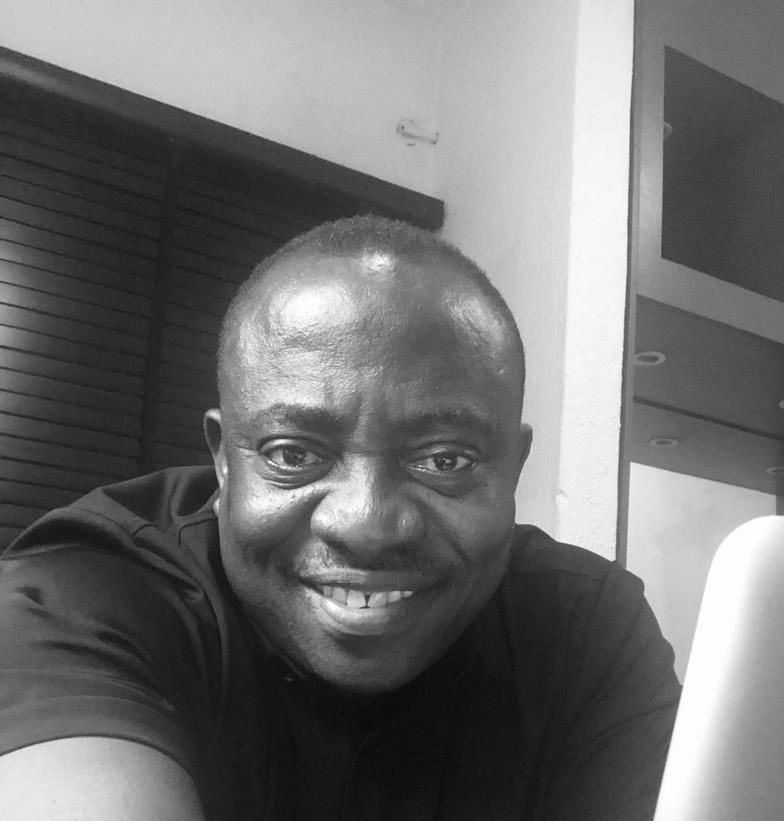By Dave Chukwuji
Nigeria, a country rich in resources and resilient people, has been held back by a pervasive and debilitating issue, corruption. This problem has become so entrenched in discussions around governance and development that it’s almost lost its shock value. However, recent statements from Ola Olukoyede, Chairman of the Economic and Financial Crimes Commission (EFCC), shed light on a critical aspect: corruption often goes unpunished in Nigeria.
This impunity is, perhaps, a greater tragedy than corruption itself, as it signals a moral decay that permeates the very fabric of society.
During a recent visit from the House Committee on Anti-Corruption and Financial Crimes, Olukoyede did not mince words as he addressed members at the EFCC headquarters in Abuja. He spoke with a bluntness that shocked even seasoned observers, revealing that the corruption embedded in Nigeria’s systems—particularly in sectors critical to development, like electricity—has reached levels that could “illuminate tears.” His words underscore a pervasive culture where not only does corruption exist, but it does so unchecked, harming countless Nigerians.
An All-Pervasive Menace
Corruption in Nigeria is not a new phenomenon, yet the scale and depth of the problem remain staggering. It has penetrated almost every institution, from the highest levels of government down to grassroots offices. The nation’s electricity sector, for instance, is a prime example. Billions of naira have been funneled into supposed reforms over the years, yet Nigerians are left in the dark—literally. Power outages are frequent, businesses suffer, and ordinary citizens live without reliable electricity. Behind the power cuts and crumbling infrastructure lie a tangled web of financial improprieties, where funds meant to sustain and improve electricity supply are routinely misappropriated.
Olukoyede’s assertion that corruption in the electricity industry could “illuminate tears” is not merely figurative language; it encapsulates the frustration and despair of citizens who endure the daily consequences of corruption. The money intended to power homes, schools, and hospitals does not just disappear—it is stolen, leaving Nigerians to pay the price with their lives, livelihoods, and futures.
The Domino Effect: Consequences of Corruption Across Sectors
The chairman’s stark comments prompt us to consider the domino effect of corruption across various sectors of Nigerian society. Money earmarked for hospitals vanishes into private pockets, and people die from treatable diseases due to the lack of equipment, medicines, or qualified healthcare professionals. Roads are left in disrepair, turning routine commutes into death traps. Funds for education are siphoned off, leaving schools without basic facilities and condemning children to a cycle of poverty, illiteracy, and vulnerability to crime and drugs. Military and police funds are pilfered, rendering security forces ill-equipped to protect the nation, leading to tragic losses among the brave men and women in uniform.
In all these instances, the common thread is clear: corruption kills. It doesn’t just stall development or inconvenience the populace; it endangers lives and undermines the very systems that should protect and uplift society.
A Culture of Impunity: Why corruption thrives unchecked
One might ask: Why does corruption flourish in Nigeria despite well-known legal frameworks and anti-corruption agencies? The answer lies not in the absence of institutions, but in a culture of impunity that protects the perpetrators. Those who steal public funds or engage in fraudulent activities rarely face legal consequences. High-profile cases often disappear from the headlines with no satisfactory conclusion, and culprits are often granted bail or acquitted on technicalities. Nigeria’s struggle with corruption is a persistent issue, with convicted individuals often reemerging in public life, sometimes in even higher positions of power. This phenomenon is fueled by a justice system that appears to turn a blind eye to certain cases. Olukoyede, Chairman of the Economic and Financial Crimes Commission (EFCC), highlights the devastating impact of corrupt officials evading punishment, which undermines accountability in the country.
The lack of consequences for corrupt actions sends a disturbing message to potential offenders: corruption is a low-risk, high-reward endeavor. The promise of power and wealth outweighs any fear of legal repercussions. This culture of impunity has far-reaching consequences, perpetuating a cycle of corruption that affects every level of Nigerian society.
The EFCC’s Challenge: Changing the narrative
The big question that arises from Olukoyede’s disclosures is: What will the EFCC do about it? Nigerians have become accustomed to reports of corruption and vague promises of reform. They have witnessed successive governments launch anti-corruption drives, only to see the efforts peter out or become mired in political bias. To restore faith in the system, the EFCC must demonstrate not only a commitment to transparency but also the political will to prosecute offenders, irrespective of their social status or connections.
Olukoyede has been vocal about his commitment to a renewed fight against corruption, but the road ahead is daunting. Beyond high-profile arrests and media spectacles, the EFCC needs to deliver concrete results that Nigerians can see and feel. This means securing convictions that lead to tangible penalties—jail time, asset forfeiture, and long-term disqualification from public office for those convicted. But more importantly, the EFCC must strive to address systemic issues that make corruption so rampant, such as weak regulatory frameworks, lack of oversight, and a judiciary that can sometimes be easily influenced.
Public support and the role of civil society
Fighting corruption cannot be the sole responsibility of the EFCC or any other agency; it requires a collective effort. Civil society, the media, and ordinary citizens have a crucial role to play in holding public officials accountable. Nigerians need to cultivate a culture of vigilance, where corrupt acts are not only frowned upon but actively exposed and resisted. Advocacy groups and NGOs must continue to pressure the government for greater transparency and push for legal reforms that make corruption harder to perpetrate and easier to punish.
For instance, Nigerian citizens can push for a Freedom of Information Act that is stronger and more accessible, making it easier to obtain records of government expenditures and contracts. Social media, which has become a powerful tool for exposing injustices, can also serve as a platform to amplify cases of corruption and keep public pressure on officials. Civic education programs can teach young Nigerians about the impact of corruption and the importance of integrity in public service.
Systemic reform: Essential steps to combat impunity
Ultimately, the battle against corruption will require more than the efforts of one agency or a few outspoken leaders. It will necessitate systemic reforms across all levels of government. The judicial system, in particular, must be strengthened and insulated from political interference, so that cases of corruption are handled with impartiality and speed. Anti-corruption laws need to be revised and strictly enforced, with no room for leniency or manipulation.
One promising area for reform is in the oversight of public funds. The government could consider adopting more rigorous auditing mechanisms, ensuring that every kobo allocated to a project is accounted for. Additionally, whistleblower protection laws should be strengthened to encourage citizens to report instances of corruption without fear of retaliation. If public officials know that their actions are being scrutinised, they may think twice before engaging in corrupt practices.
Hope amidst despair: The potential for change
Olukoyede’s refreshing honesty has struck a chord with many Nigerians, not just because he’s shedding light on the country’s corruption problem, but also because it’s a rare display of candour from someone in a high-ranking position. His words are a call to action, a stark reminder that the fight against corruption is far from over and the stakes are higher than ever. For millions of Nigerians, corruption isn’t just a concept – it’s a harsh reality that affects daily life.
Yet, despite the grim outlook, there is reason to hope. Nigeria has a rich history of resilience, and there is no shortage of citizens who are willing to stand up for what is right. Young Nigerians, in particular, have shown a growing intolerance for corruption and an eagerness to hold leaders accountable. The #EndSARS movement and other recent social movements illustrate that Nigerians are ready to demand better governance, transparency, and accountability.
The road ahead: A call to action
If Nigeria is to overcome the scourge of corruption, it will require a collective shift in mindset. Every Nigerian—public officials, private citizens, young and old—must recognize that corruption is not someone else’s problem; it is everyone’s problem. The culture of impunity that enables corruption to flourish can only be dismantled if people across the country demand integrity and accountability at every level of society.
The EFCC, under Olukoyede’s leadership, must now prove that it is serious about its mandate. Nigerians are waiting, watching, and hoping for real change. The chairman’s words have thrown down the gauntlet, challenging both the institution he leads and the people it serves. The fight against corruption will not be easy, nor will it be swift. But with sustained effort, courage, and a united front, Nigeria can begin to rebuild its institutions, restore faith in its leadership, and secure a brighter, more just future for generations to come.
The time for action is now, and the question remains: will Nigeria rise to the occasion, or will corruption continue to cast its long, dark shadow over the nation’s potential?
Dave Chukwuji is the author of City of Gold and Rust


